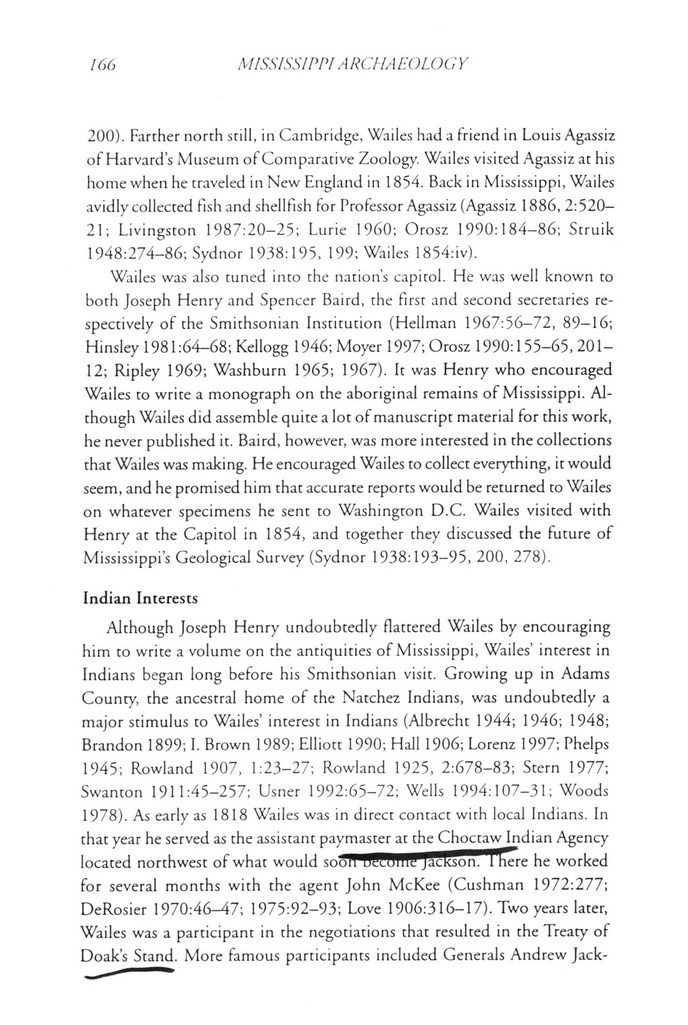This text was obtained via automated optical character recognition.
It has not been edited and may therefore contain several errors.
166 MISSISSIPPI A RCIIA EOLOC Y 200). Farther north still, in Cambridge, Wailes had a friend in Louis Agassiz of Harvard?s Museum of Comparative Zoology. Wailes visited Agassiz at his home when he traveled in New England in 1854. Back in Mississippi, Wailes avidly collected fish and shellfish for Professor Agassiz (Agassiz 1886, 2:520? 21; Livingston 1987:20?25; Lurie I960; Orosz 1990:184?86; Struik 1948:274-86; Sydnor 1938:195, 199; Wailes 1854:iv). Wailes was also tuned into the nation?s capitol. He was well known to both Joseph Henry and Spencer Baird, the first and second secretaries respectively of the Smithsonian Institution (Heilman 1967:56?72, 89?16; Hinsley 1981:64?68; Kellogg 1946; Moyer 1997; Orosz 1990:155?65,201? 12; Ripley 1969; Washburn 1965; 1967). It was Henry who encouraged Wailes to write a monograph on the aboriginal remains of Mississippi. Although Wailes did assemble quite a lot of manuscript material for this work, he never published it. Baird, however, was more interested in the collections that Wailes was making. He encouraged Wailes to collect everything, it would seem, and he promised him that accurate reports would be returned to Wailes on whatever specimens he sent to Washington D.C. Wailes visited with Henry at the Capitol in 1854, and together they discussed the future of Mississippi?s Geological Survey (Sydnor 1938:193?95, 200, 278). Indian Interests Although Joseph Henry undoubtedly flattered Wailes by encouraging him to write a volume on the antiquities of Mississippi, Wailes? interest in Indians began long before his Smithsonian visit. Growing up in Adams County, the ancestral home of the Natchez Indians, was undoubtedly a major stimulus to Wailes? interest in Indians (Albrecht 1944; 1946; 1948; Brandon 1899; I. Brown 1989; Elliott 1990; Hall 1906; Lorenz 1997; Phelps 1945; Rowland 1907, 1:23-27; Rowland 1925, 2:678-83; Stern 1977; Swanton 191 1:45-257; Usner 1992:65-72; Wells 1994:107-31; Woods 1978). As early as 1818 Wailes was in direct contact with local Indians. In that year he served as the assistant paymaster at the Choctaw Indian Agency located northwest of what would soSfffll?0!!!^acSor?^fliere he worked for several months with the agent John McKee (Cushman 1972:277; DeRosier 1970:46?47; 1975:92-93; Love 1906:316-17). Two years later, Wailes was a participant in the negotiations that resulted in the Treaty of Doak?s Stand. More famous participants included Generals Andrew Jack-

Wailes, Benjamin Archeology of Mississippi-10